Romania’s Elections: A Crossroads for Romania, the EU, and Ukraine
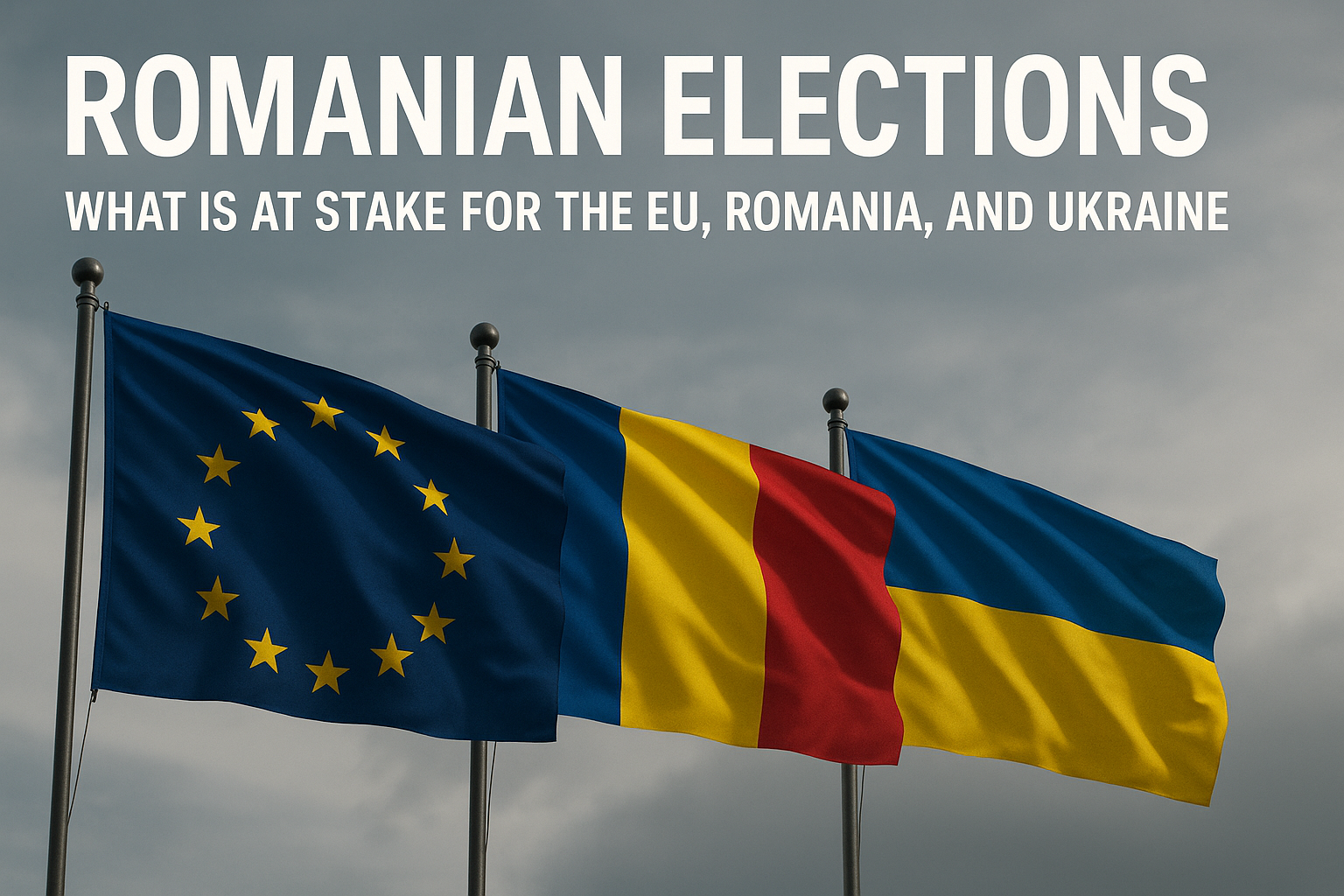
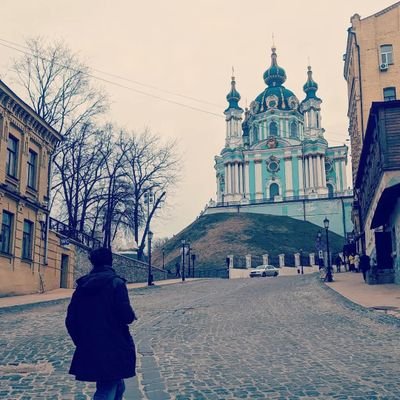
Romania made global headlines in November 2024 when its Constitutional Court annulled the second round of presidential elections—a first in the European Union. The decision followed revelations of Russian interference and illegal campaign financing tied to far-right, pro-Moscow candidate Călin Georgescu. Now, in an unprecedented runoff on May 18, Romanians must choose between two political outsiders with starkly different visions for the country—and for its role in the EU, NATO, and the war in Ukraine.
A Changed Relationship With Ukraine
Since the Romanian Revolution of 1989 and the fall of the USSR, Romanian–Ukrainian relations could be described as neighborly but frosty. Territorial disputes in the Black Sea and Danube Delta, along with concerns over the treatment of Romania’s ethnic minority in Ukraine, were recurring flashpoints. Ukraine rarely featured prominently in Romanian public discourse, except during moments like the Orange Revolution, the 2012 European Championship, the Euromaidan, and the war in Donbas.
That changed dramatically in February 2022. As hundreds of thousands of Ukrainian refugees crossed the border, the war became a defining issue in Romanian society. Civil society mobilized on an unprecedented scale, with volunteers, NGOs, local governments, and national institutions stepping in to offer food, shelter, and medical care. Romania also began sending humanitarian, military, and financial aid. Today, nearly 180,000 displaced Ukrainians remain in the country.
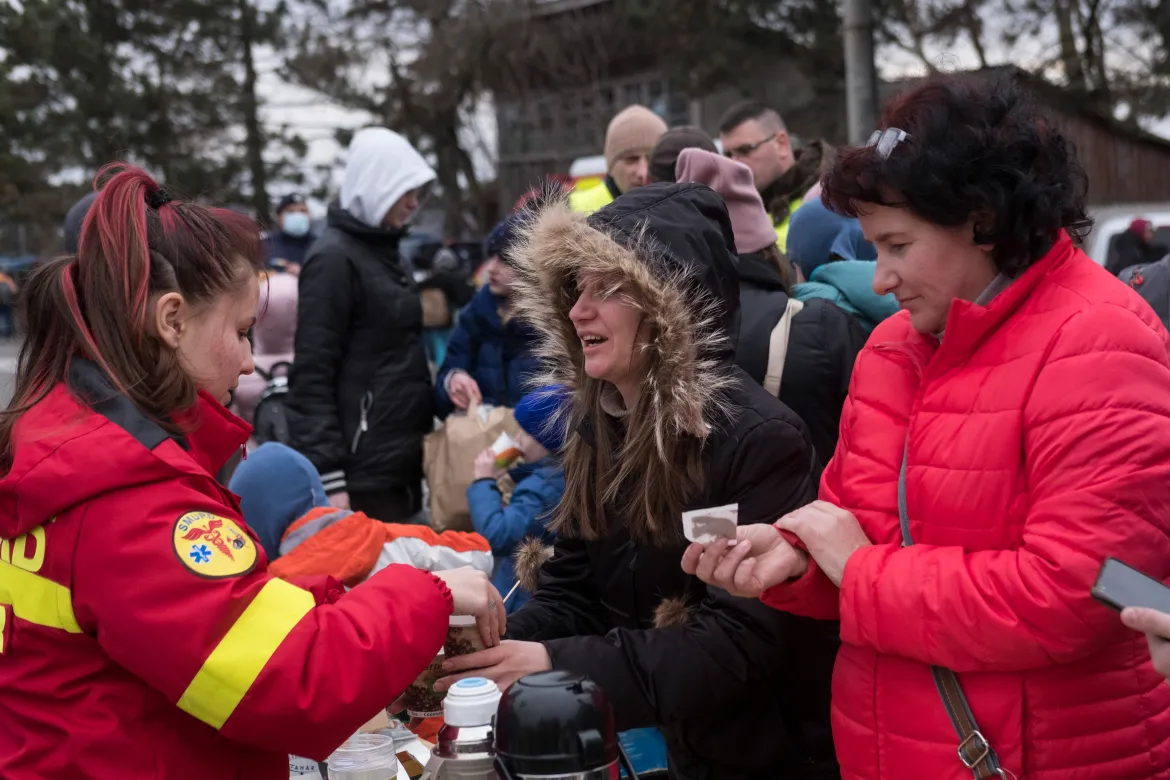
While the war has since receded from daily headlines, support efforts continue. Romanian NGOs and volunteers still deliver aid across the border, and a number of Romanian citizens continue to fight alongside Ukrainian forces. The government also provides housing subsidies for displaced Ukrainians, and although it does not release detailed information on all aid sent to Ukraine, it has delivered significant military support — including artillery shells, fuel, and even a Patriot air defense battery. Romania also plays a critical role in facilitating the export of Ukrainian agricultural products abroad.
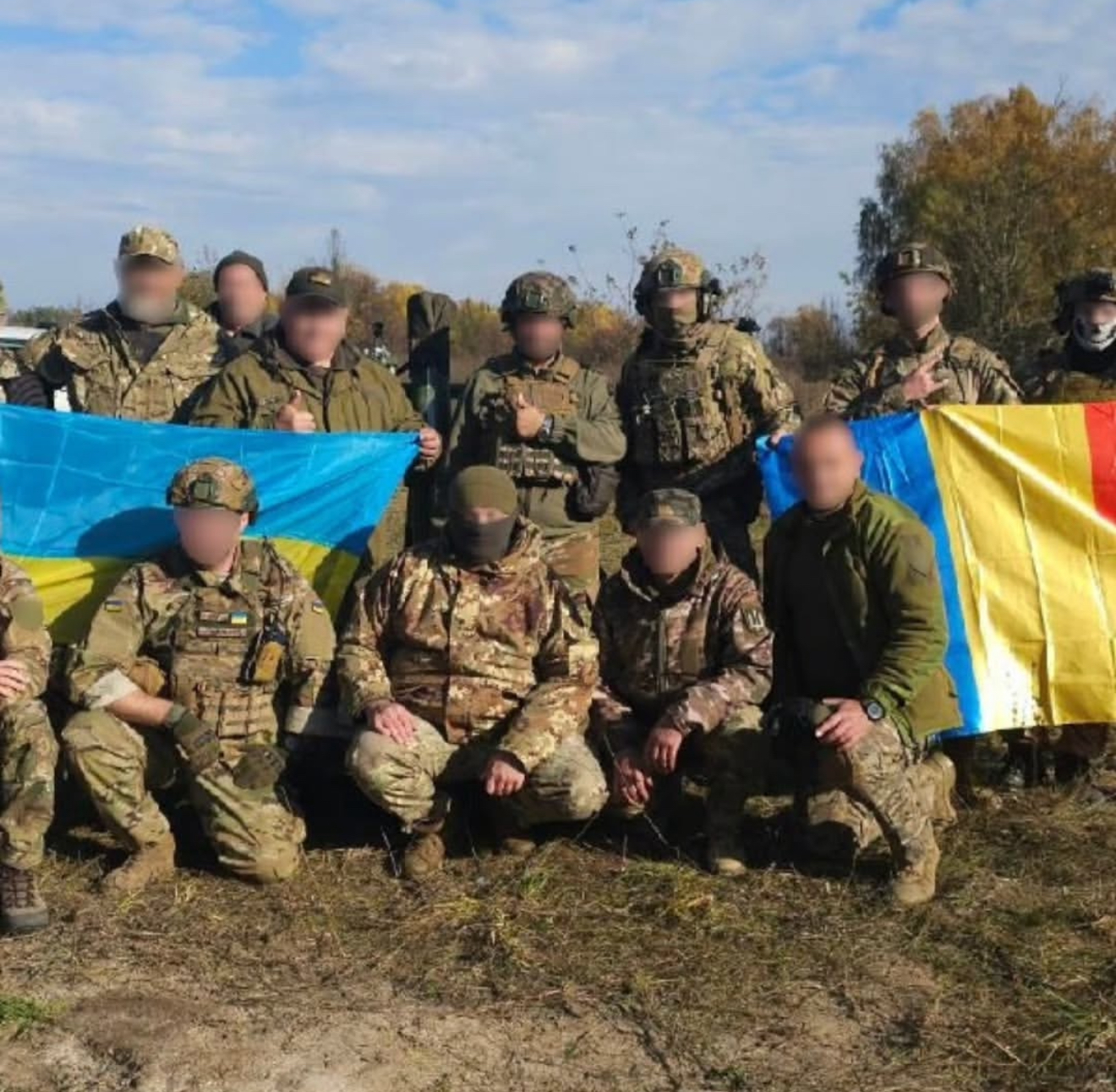
A Fractured Political Landscape
Romania’s politics have grown increasingly volatile. Since joining the European Union in 2007, living standards have improved, poverty has declined, and infrastructure has seen notable upgrades. But post-pandemic inflation, coupled with rising disillusionment toward mainstream politicians, has left the public frustrated. Two traditional parties—the Social Democrats (PSD) and the National Liberals (PNL)—have long dominated Romanian politics, often shifting between rivalry and uneasy coalition. Both have been repeatedly tainted by corruption scandals, with former prime ministers and ministers among those convicted.
Frustration with this status quo has grown steadily over the past decade, particularly during the presidency of Klaus Iohannis (PNL), whose technocrati, hands off and political maneuvering alienated many.
Reform from the Capital: Nicușor Dan
Two major events reshaped Romanian politics in 2020. The first was the election of mathematics professor and civic activist Nicușor Dan as Mayor of Bucharest. Running as an independent, Dan campaigned on a promise to fight corruption, balance the budget, and crack down on illegal construction and chaotic development.
For nearly two decades, Dan led the Save Bucharest Association, challenging successive administrations and real estate interests in court to preserve the capital’s historical fabric. Before his election, Bucharest was seen as a city in decline—mismanaged and exploited by a revolving door of political appointees.
Upon taking office, Dan inherited a bankrupt city hall, crumbling infrastructure (some dating to the 1960s), and a hostile city council. Despite this, he stabilized the city’s finances and began a sweeping modernization of public utilities. In some cases, this required temporarily cutting services to allow for urgent repairs.
He halted speculative zoning plans, launched a comprehensive General Urban Plan, and secured European funds to support long-term development. Over time, he managed to win cooperation from a fragmented and initially resistant city council.
A Populist Challenger: George Simion and AUR
The other major shift in 2020 was the unexpected rise of the nationalist AUR party, led by George Simion. Founded in 2019, the party entered Parliament with over 9% of the vote. Its campaign relied heavily on social media, amplified by accounts abroad—some linked by analysts to pro-Russian networks. The sources of AUR’s early financing remain murky and contested.
AUR’s platform mirrors other far-right movements across Europe: anti-immigration, Eurosceptic, and critical of NATO. The party also calls for the reunification of Romania with the Republic of Moldova and makes irredentist claims to Northern Bukovina, now part of Ukraine’s Chernivtsi region.
Positioning itself as a defender of national sovereignty against EU overreach, the party has floated the idea of a referendum on Romania’s EU membership. Simion, a former leader of a radical football supporters’ group, has been banned from entering both Ukraine and Moldova. Authorities in both countries cited security concerns, including his proximity to figures allegedly tied to Russian intelligence.
A Cancelled Election and a Runoff Like No Other
In November 2024, Romania was rocked by the stunning first-round victory of Călin Georgescu, a pro-Russian independent whose platform closely mirrored AUR’s. Despite declaring zero campaign spending, Georgescu benefited from millions of artificial social media engagements, particularly on TikTok. Analysts and election monitors pointed to sophisticated foreign manipulation.
In a landmark ruling, the Constitutional Court annulled the second round and banned Georgescu from running again—prompting an outcry from far-right groups and nationalist voices both at home and abroad.
In the replayed first round on May 4, George Simion—endorsed by Georgescu—took 41% of the vote. Nicușor Dan followed with 22%, while the rest of the field fragmented the traditional party vote. Voter turnout was relatively low at 52%, a dynamic that benefited Simion. He drew strong support from rural areas and Romanians abroad, many of whom were targeted by the same digital infrastructure used in Georgescu’s campaign.
For the first time since the fall of communism, Romania’s presidential runoff features no candidates from the traditional parties.
Where the Candidates Stand on Ukraine
Since the full-scale Russian invasion, George Simion and AUR have maintained an ambiguous and at times contradictory stance. While officially condemning the war, they have used it to attack the Romanian government’s support for Ukraine, framing it as blind obedience to Western powers. Simion has opposed military aid, warning it risks drawing Romania into war, and frequently invokes the Romanian minority in Ukraine as justification for a more antagonistic position.
Recently, Simion demanded that Ukraine “repay” Romania for its donation of a Patriot missile system—fueling concerns that his rhetoric aligns too closely with Kremlin narratives. While he stops short of openly supporting Russia, Simion often echoes Moscow’s talking points, and his refusal to distance himself from suspected Russian influence has alarmed analysts.
Nicușor Dan, by contrast, has taken a clear and consistent pro-Ukraine stance. While his mayoral role kept him out of formal foreign policy, his presidential campaign has made his position explicit. He supports continued military and financial assistance to Kyiv and sees Ukraine’s sovereignty as essential to Romanian and Moldovan security.
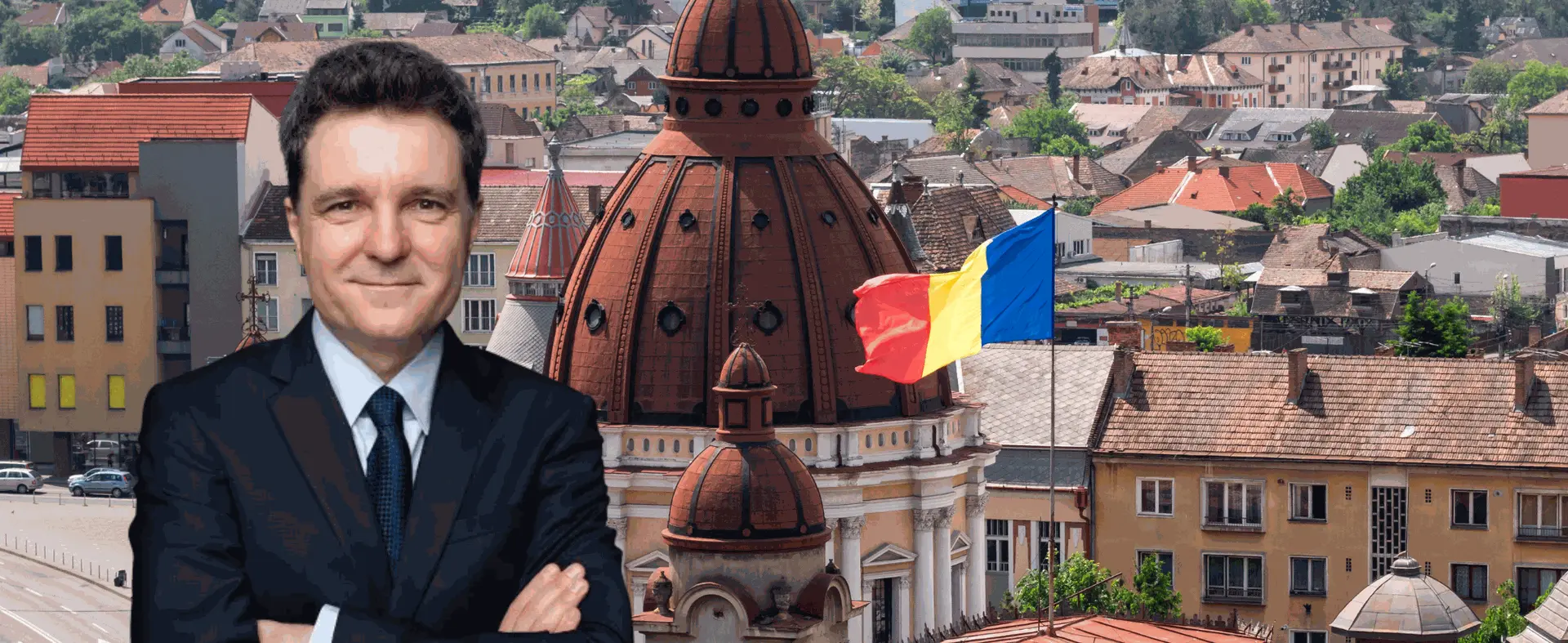
“I want Romania to be active in the European rearmament programme. My Romania will support Ukraine financially and militarily for as long as needed. Ukraine is vital for our national and Moldovan security,” he recently declared.
Dan’s stance aligns closely with Romania’s pro-Western foreign policy and underscores his vision of a modern, stable state firmly rooted in the EU and NATO.
The Final Stretch
Markets React
Following Simion’s first-round victory, Romanian markets tumbled. Interest rates spiked, and the leu fell to a historic low against the euro. Business leaders and foreign investors voiced alarm over AUR’s platform, warning of the risk of recession and accelerating inflation under a populist presidency.
Polls Tighten
Simion led Dan by 14 points in the first poll published after the May 4 vote. But a May 13 survey now shows them in a statistical dead heat, each polling at 48.2%. Voter turnout may prove decisive.
Parliament in Deadlock
In November’s parliamentary elections, held concurrently with the original presidential vote, no party won a governing majority. Far-right parties, including AUR, secured about 30% of seats, leaving coalition talks in limbo.
Under Romania’s semi-presidential system, the president appoints the prime minister, commands the military, and represents the country in foreign policy—particularly within NATO and the EU. However, legislation and governance remain dependent on parliamentary support.
Simion has signaled that, if elected, he may nominate Călin Georgescu as prime minister—a move that would likely trigger a constitutional and political crisis. Georgescu’s past disqualification, pro-Russian rhetoric, and fringe alliances could make him unacceptable to most parliamentary factions and foreign partners alike.
Whoever wins on May 18 will face the near-impossible task of building a government while having campaigned against the very parties needed to form one.
What Comes Next
Romanians will be on edge until the last vote is counted on the morning of May 19. But no matter who prevails, the months ahead are likely to be turbulent. With geopolitical tensions high, economic uncertainty looming, and institutional trust strained, Romania stands at a pivotal moment—for itself, for Europe, and for Ukraine.